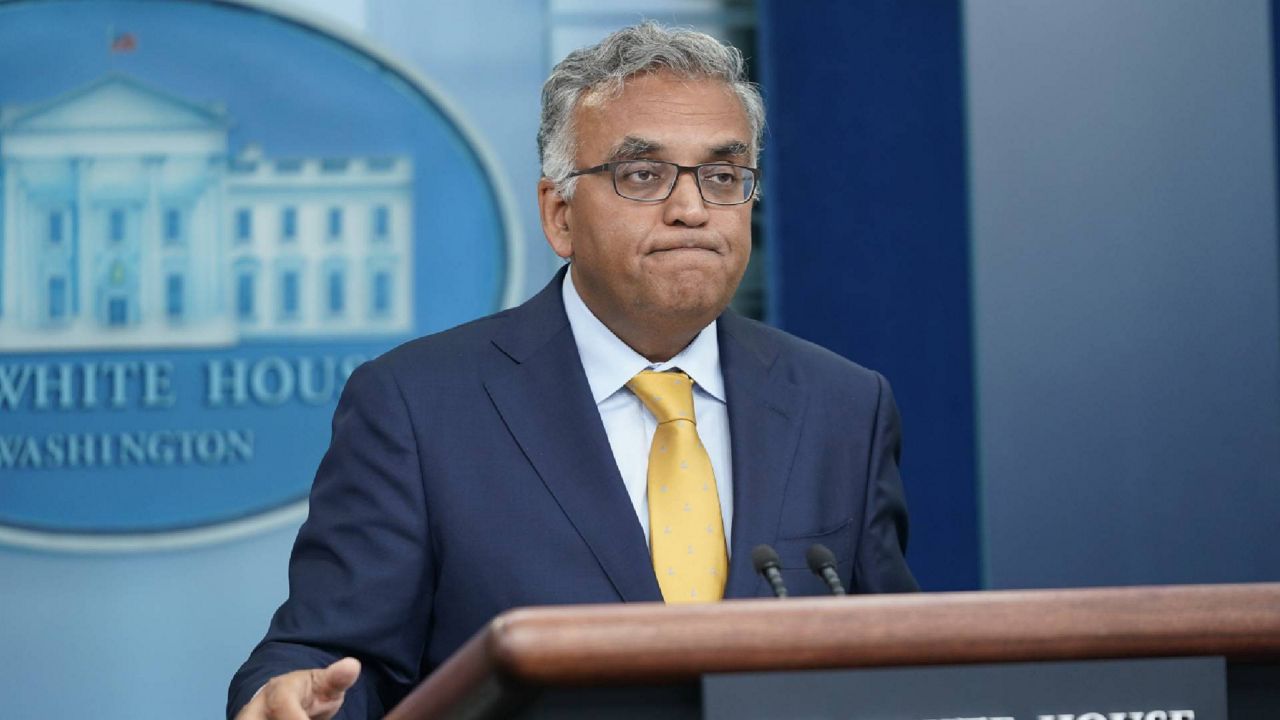Top U.S. health officials on Thursday sounded the alarm on how their need to divert COVID-19 funding for things like test manufacturing and vaccine research could put the country in a dire position in the fall, as they continue to urge Congress to pass legislation to pay for future vaccine doses and other critical response measures.
The Biden administration had announced Wednesday that they were forced to reallocate more than $10 billion in coronavirus relief as it tries to come up with money to secure the next generation of vaccines and treatments for some high-risk Americans.
The White House said it has been left with “no choice” but to cut back on orders of at-home rapid tests that have supported a domestic manufacturing base for the easy diagnostic tests. It also is scaling back funding for research and development of new COVID-19 vaccines and limiting orders of personal protective equipment in an effort to maintain some stockpiles of vaccines and treatments for Americans heading into the winter.
"We've come so far in these two years thanks to the support of Congress. And now having to make these challenging decisions is going to set us back," said Dawn O'Connell, the assistant secretary of health and human services for preparedness and response.
"We're going to give up domestic testing capacity, something that you all know we worked so hard to build through delta and omicron," she said.
Even with the diversion of funding, there will still not be enough money to buy vaccines and treatments for everyone, pandemic response officials said.
"These were incredibly painful decisions," said Dr. Ashish Jha, who leads the administration's COVID-19 response. "These are not the trade-offs that we should be having to make at this point in the pandemic."
Jha and O'Connell called on Congress to act so that the country is not caught "flat-footed" in the fall, when cases could rise or another variant could emerge, increasing the need for tests, masks, therapuetics and vaccine doses.
Dr. Jha said funding those resources now was the "fiscally the prudent thing to do."
"It's far more expensive to have to rebuild that domestic manufacturing capacity," he said. "It's a no brainer, in terms of protecting the health of American people, but even financially, it's much smarter. So acting early is clearly the right thing to do."
Jha said that members of Congress he'd spoken to about the need for funding were understanding of the situation despite the delay in action.
Another risk of a lack of funding is the U.S. losing its "place in line" for vaccines as pharmaceutical companies produce doses and sign contracts with countries buying them around the world, officials said.
In the meantime and in the absence of congressional action, O'Connell told reporters Thursday that the administration was "looking under every couch cushion to see what is available."
The Associated Press contributed to this report.



